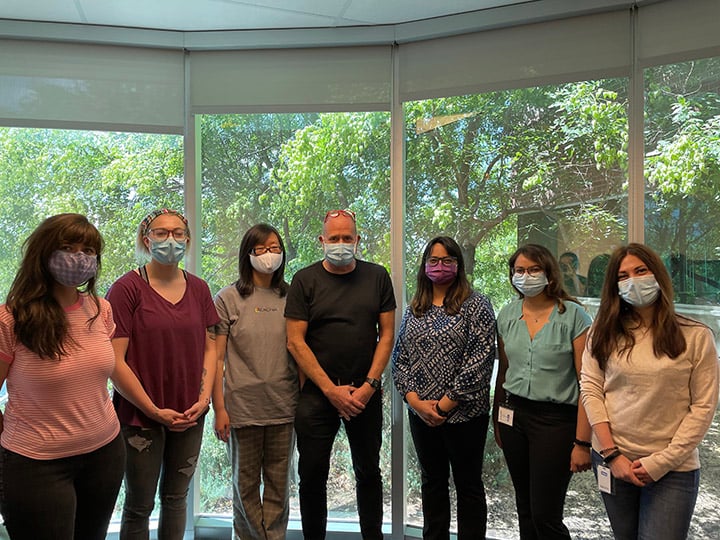Tecan uses cookies to improve our website. By continuing to browse our website, you accept our cookie policy.
Tecan uses cookies to improve our website. By continuing to browse our website, you accept our cookie policy.

Metagenomics is rapidly emerging as a promising method for disease diagnosis, but the need for manual processing is delaying turnaround times and limiting clinical uptake. Dr John Rossen, Head of Global Research & Development and Product Strategy for Europe at IDbyDNA Inc, discusses how the company has developed a test that can give detailed diagnostic reports on pathogens associated with respiratory infections and urinary tract infections, and how automation will speed the transition of this assay from research to routine testing in clinics.
Patients who present with an unknown respiratory complaint are typically given a single, conventional molecular test or bacterial culture test for a suspected target organism, which is decided by the physician. This leads to concerningly low diagnostic success rates, with no causative pathogen detected in 60 percent of pneumonia cases. Clinical shotgun metagenomics offers an alternative strategy to diagnosing disease, by providing a broad, unbiased and culture-independent technique that can investigate all pathogens and host responses at once. It enables comprehensive analysis of all microbial and host genetic material – including bacteria, viruses and fungi – to help identify pathogens that were previously missed. Investigating the genomes of the entire microbiome also provides insights into complex coinfections, and helps to predict resistance or virulence phenotypes that can worsen disease outcomes. However, shotgun sequencing also has some drawbacks, as it does not allow detailed analysis of several key aspects – such as antimicrobial resistance markers – and is more expensive than more targeted approaches.
 Dr John Rossen (center) with members of the IDbyDNA team
Dr John Rossen (center) with members of the IDbyDNA team
San Francisco Bay area-based company IDbyDNA has developed an innovative Precision Metagenomics approach to overcome the limitations of shotgun sequencing. This sequencing strategy, combined with advanced AI, is already being used for diagnosing respiratory and genitourinary infections, as well as to identify antimicrobial resistance markers, and the company is now looking at automating its workflow to improve the throughput for clinical samples. Dr John Rossen, Head of Global Research and Development and Product Strategy for Europe at IDbyDNA, discussed the role of automation in turning newly developed research use only assays into commercially viable diagnostic tests: “Our company is bringing Precision Metagenomics into the clinical space, initially focusing on respiratory and genitourinary infections. Some viral respiratory infections are already detected by molecular diagnostics – mainly using real-time PCR – but we wanted to take this one step further, using Precision Metagenomics to detect all the known pathogens causing respiratory disease, instead of a single target. You get a clearer overall picture of the interaction between various organisms, as well as identifying coinfections or predicting antibiotic resistance, both of which can influence the outcome of treatment and disease.”
With automated sample preparation, the sky is the limit for metagenomic sequencing, and we can really begin to appreciate its potential for diagnostic testing and tracing outbreaks of disease.
“We initially began with respiratory indications, creating an assay that provides a thorough genomic investigation of over 270 pathogens and around 1,200 different antimicrobial resistance alleles. This means that a patient presenting with COPD symptoms can be given the same assay as a patient with suspected TB, for example, so it is not disease specific. We then adapted this approach to develop one workflow that could be used for almost every disease area, including respiratory infections, genitourinary infections, sepsis and many more.”
IDbyDNA has already completely automated its data analysis and reporting, and is now looking to automate its laboratory workflows. Dr Rossen continued: “We currently perform the wet lab work manually, which, as you can imagine, is not particularly feasible for labs routinely performing high volume diagnostics, with hundreds of cases that they need to investigate. Although still much faster than conventional culture testing, performing sequencing processes manually can take a long time, and it is very labor intensive, delaying the turnaround time for test results and increasing the incidence of errors. The next obvious step our customers are asking for is to automate the library preparation and enrichment process, to make Precision Metagenomics a realistic alternative to real-time PCR for precise disease diagnostics in clinics.”
“Automation of any molecular diagnostics workflow needs to begin with a liquid handling workstation that can perform sample extraction, library preparation and any other pipetting task in the pathway. This will remove much of the labor that goes into preparing hundreds of samples a day, and will increase our throughput dramatically. The sequencing data can then be run through our automated, AI-driven data analysis solution with syndrome-specific reporting – such as selective reporting of pathogens commonly linked to genitourinary infections – to provide clinicians with a clear interpretation of results in a diagnostic report.”
“With automated sample preparation, the sky is the limit for metagenomic sequencing, and we can really begin to appreciate its potential for diagnostic testing and tracing outbreaks of disease. One thing that the COVID-19 pandemic has shown us all is that it is not only important to detect a virus, but also to do surveillance and understand the disease landscape on an individual level, as undetected coinfections often worsen the disease progression. Precision Metagenomics is the best unbiased and culture-free method for the identification of a pathogen, and automation can make assays commercially viable in clinics for the future of disease diagnosis. This is what IDbyDNA is aiming to provide: precise insights for better health,” Dr Rossen concluded.
To find out more about Tecan’s solutions for automated clinical diagnostics, visit diagnostics.tecan.com
To learn more about IDbyDNA, go to www.idbydna.com